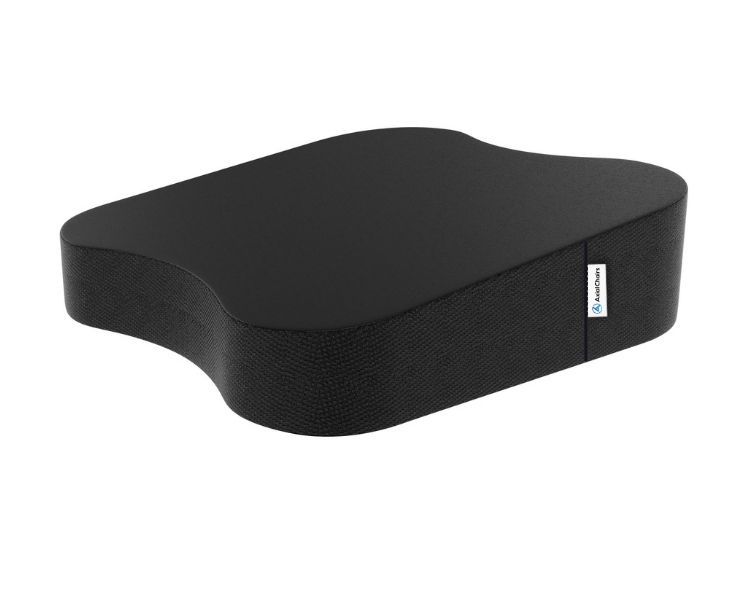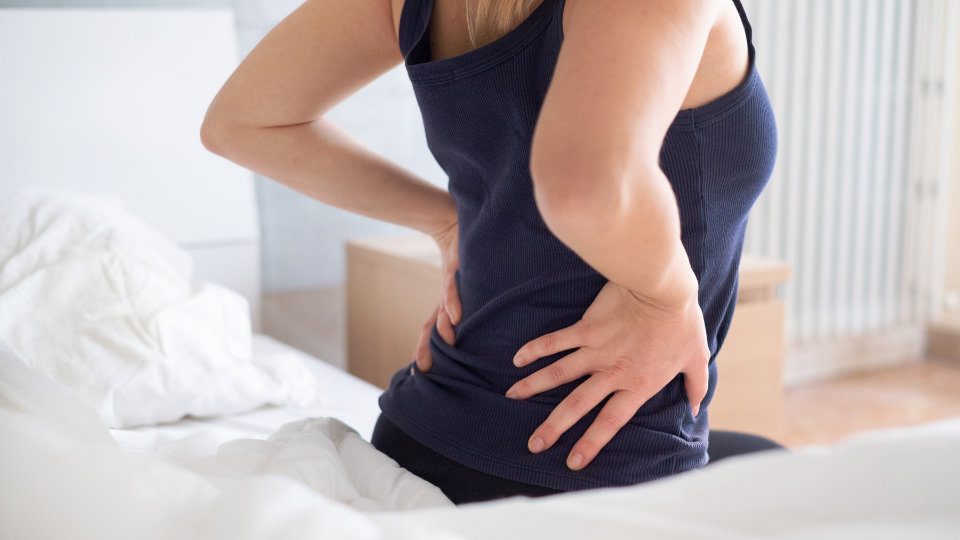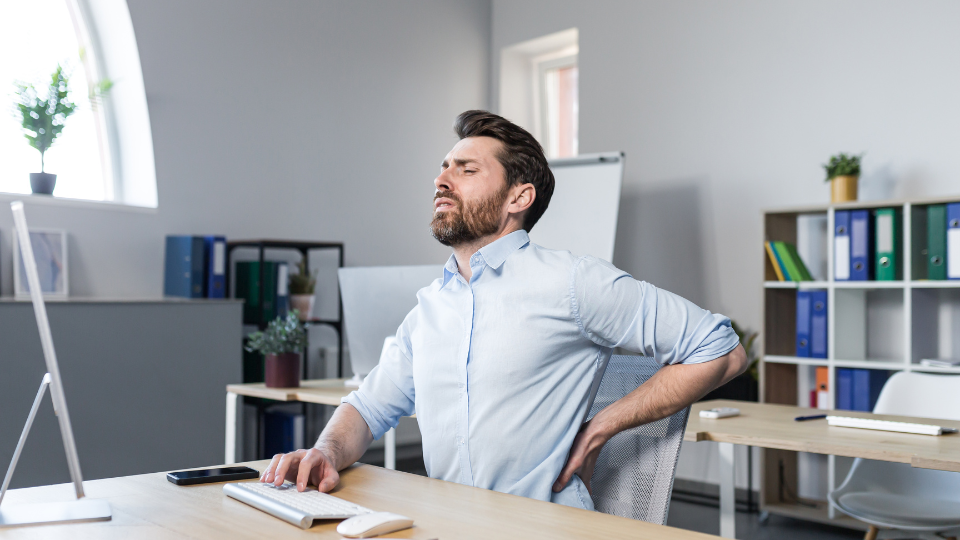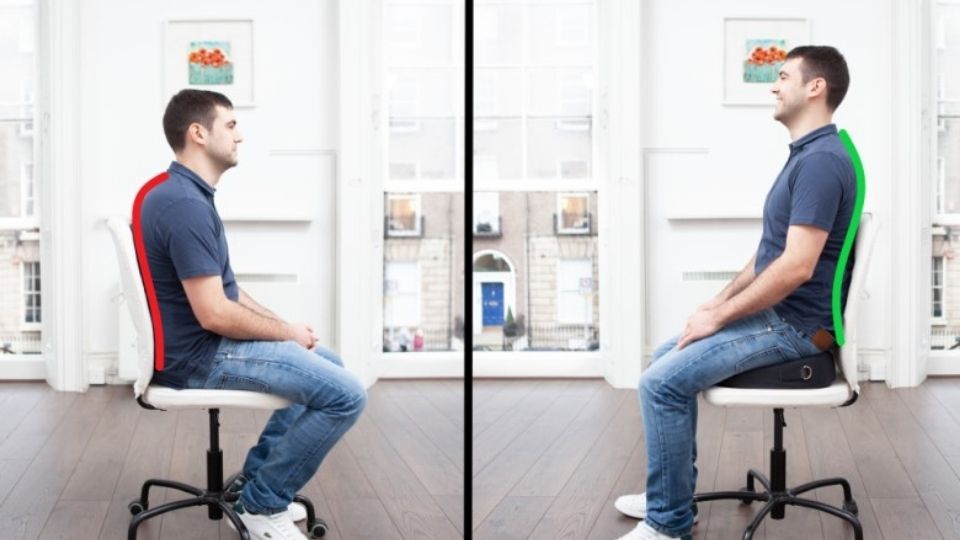Have you ever woken up in the morning with a twinge of pain in the back or neck? It can be incredibly disheartening, and it makes getting started with your day far less pleasant. If this is something that happens regularly to you, don’t let yourself suffer any longer; there are plenty of solutions that can help with low-back pain. In this blog post, let’s talk about what might cause your morning aches and pains as well as potential treatments to relieve them. As chiropractors accustomed to helping our patients find relief for these types of problems, we’ll give you all the advice possible so that you can get back on track and living life free from discomfort!
As a general rule, back pain in the morning is a common complaint – often associated with poor posture, sedentary lifestyle, or an unsupportive mattress. Even those with active lifestyles and muscular strength may experience morning stiffness.
If back pain is an issue for you, let me introduce you to some excellent alternatives to traditional office chairs. With over 30 years of experience in chiropractic practice and training in ergonomics, I’ve authored a book on posture, appeared on national television, and created several solutions to improve sitting comfort and posture. Moreover, I have successfully crowdfunded a project for ergonomic seat cushions.
Causes of Morning Pain
- Poor sleeping posture: Your sleeping position can have a significant impact on your spinal health. Sleeping on your stomach can strain your neck and lower back, while sleeping in a twisted position can cause muscle imbalances and misalignments.
- Inadequate mattress support: An old or unsupportive mattress may fail to provide proper support for your spine, leading to discomfort and pain.
- Inactivity during sleep: While you sleep, your body naturally becomes less active. This inactivity can cause your muscles to stiffen, which can lead to morning back pain.
- Underlying spinal issues: Sometimes, morning back pain may be a symptom of an underlying spinal condition, such as degenerative disc disease, spinal stenosis, or a herniated disc.
Tips for Alleviating Morning Back Pain
- Optimize your sleeping position: Try sleeping on your side with a pillow between your knees, or on your back with a pillow under your knees. These positions can help maintain the natural curvature of your spine, reducing stress on your back muscles.
- Invest in a supportive mattress: A high-quality, medium-firm mattress can provide the necessary support for your spine, helping to alleviate morning back pain. Remember to replace your mattress every 7-10 years, or sooner if it starts to sag or lose its shape.
- Incorporate stretching and movement: Begin your day with gentle stretches and movement to help loosen up your muscles and improve circulation. This can help alleviate morning stiffness and back pain.
- Maintain a healthy lifestyle: Regular exercise, a balanced diet, and proper hydration can all contribute to a healthier spine and reduced back pain. Additionally, avoid smoking and excessive alcohol consumption, as these habits can negatively impact your spinal health.
- Consult a chiropractor: If your morning back pain persists, consider seeking the advice of a chiropractor. A skilled chiropractor can assess your spinal health, identify any underlying issues, and develop a personalized treatment plan to help reduce pain and improve function.
All Day Comfort & Support
Lower Back Pain in the Morning that Goes Away: Morning Lower Pain Relief and Sleep Quality
Lower back pain in the morning is a common issue that many people experience, and it usually goes away as the day progresses. This type of pain can be caused by various factors, such as poor sleeping posture, an unsupportive mattress, or muscle stiffness from inactivity during sleep. To alleviate morning lower back pain, it’s important to focus on getting quality sleep by choosing a supportive mattress, maintaining a comfortable sleeping position, and creating a sleep-friendly environment. Incorporating gentle stretching exercises into your morning routine can also help to loosen tight muscles and reduce pain.
Morning Back Pain Cancer: Recognizing the Signs and Seeking Medical Advice
Although morning back pain is often a result of muscle stiffness or poor sleeping posture, it’s essential to recognize the signs of a more serious underlying condition, such as cancer. Persistent, worsening, or unexplained back pain that doesn’t improve with rest or pain relievers could potentially indicate a more severe issue. Additionally, symptoms such as weight loss, fever, or night sweats may also be cause for concern. In these cases, it’s crucial to consult with a healthcare professional for proper evaluation and diagnosis.
Middle Back Pain in the Morning that Goes Away: Sleep, Recovery, and Pain Management
Similar to lower back pain, middle back pain that occurs in the morning and disappears throughout the day is often related to sleep quality and muscle stiffness. During sleep, our muscles can become stiff and tight, which can lead to discomfort upon waking. To manage and alleviate middle back pain, it’s crucial to prioritize good sleep habits and incorporate gentle stretching exercises into your morning routine. In addition, using heat therapy or over-the-counter pain relievers can provide temporary relief and help you start your day with less discomfort.
Upper Back Pain in the Morning: Causes, Solutions, and the Role of Pain Relievers
Upper back pain in the morning can result from various factors, such as muscle strains, poor posture, or sleeping on an unsupportive pillow. To reduce upper back pain, consider adjusting your sleeping position, investing in a pillow that supports your neck and spine, and practicing good posture throughout the day. Additionally, using pain relievers, such as over-the-counter medications or topical creams, can provide temporary relief for morning pain. Implementing gentle stretches and strengthening exercises targeting the upper back and shoulder muscles can also help alleviate discomfort and improve overall posture.
How to Relieve Back Pain After Waking Up: Effective Pain Relievers and Strategies for Long-Term Relief
To effectively relieve back pain after waking up, consider implementing a combination of pain relievers and lifestyle changes. Over-the-counter medications, such as nonsteroidal anti-inflammatory drugs (NSAIDs), can provide temporary relief from morning back pain. Additionally, gentle stretching exercises, heat therapy, and massage can help to loosen tight muscles and alleviate discomfort. Long-term strategies for reducing morning back pain include maintaining a healthy weight, practicing good posture, and engaging in regular physical activity to keep your muscles and spine strong and flexible. It’s also essential to prioritize sleep quality by investing in a supportive mattress and pillow and establishing a consistent sleep schedule.
I’ve written a complete hands-on review about the best sitting position for sciatica, and here is what I tested best with my sciatica patients.
Best Seat Cushion for Back SupportAxial Ergonomic Seat Cushion® | Seat Chair Wedge
Quick Guide: A 30-Second Summary

All Day Comfort & Support
Product Name
Axial Designs™ Seat Cushion
Price
$149
Warranty
1 Year
Type
Posture Wedge
Top Layer
100% Natural Latex (Molded)
Bottom Layer
High-Density Foam
Top Material
Isometric Grippy Vegan Leather
Bottom Material
Non-Slip Material
Side Material
3D Breathable Fabric
Forming an Ergonomic Seating Space: Tips and Suggestions
To best address your seating needs, it’s essential to prioritize various factors, including the vital aspect of chair personalization. There are different strategies to achieve this, like incorporating an ergonomic cushion and lumbar support. These additions can alleviate stress on your back and legs, boosting comfort and posture during extended periods of sitting. Also, verify that your feet are flat on the ground and there is sufficient distance between your chair and desk. By following these suggestions, any common hard chair can be converted into an ergonomic haven that encourages long-term health and well-being.
Ergonomic Posture Support Cushion
An ergonomic seat wedge (above) can be utilized to align your spine accurately and improve stability. This premium natural latex posture support cushion assists in building core muscles while easing tension in other body parts, such as the shoulders and neck. Additionally, sitting upright is more forgiving on your hips and knees, as it engages more muscle groups at once compared to reclining against something soft. This upright posture helps to deter stress-causing habits that people may inadvertently adopt while working.
Summary
Ultimately, if you are experiencing back pain first thing in the morning, taking proactive steps to improve your sleep posture and lifestyle can help bring long-term relief. Of course, always pay attention to any pain signals and contact your doctor if it worsens or persists over an extended period of time. Above all else, remember that you are not alone in this battle against discomfort.
Many people suffer from back pain in the morning and there is hope for a better future of wellness. If you take action now, you can start feeling relief sooner rather than later. Take the time to learn more about ways to manage your morning back aches and speak with trusted health care professionals who can give you guidance tailored to your individual needs. We wish you luck on this journey towards achieving optimal health and a life with less back pain!








